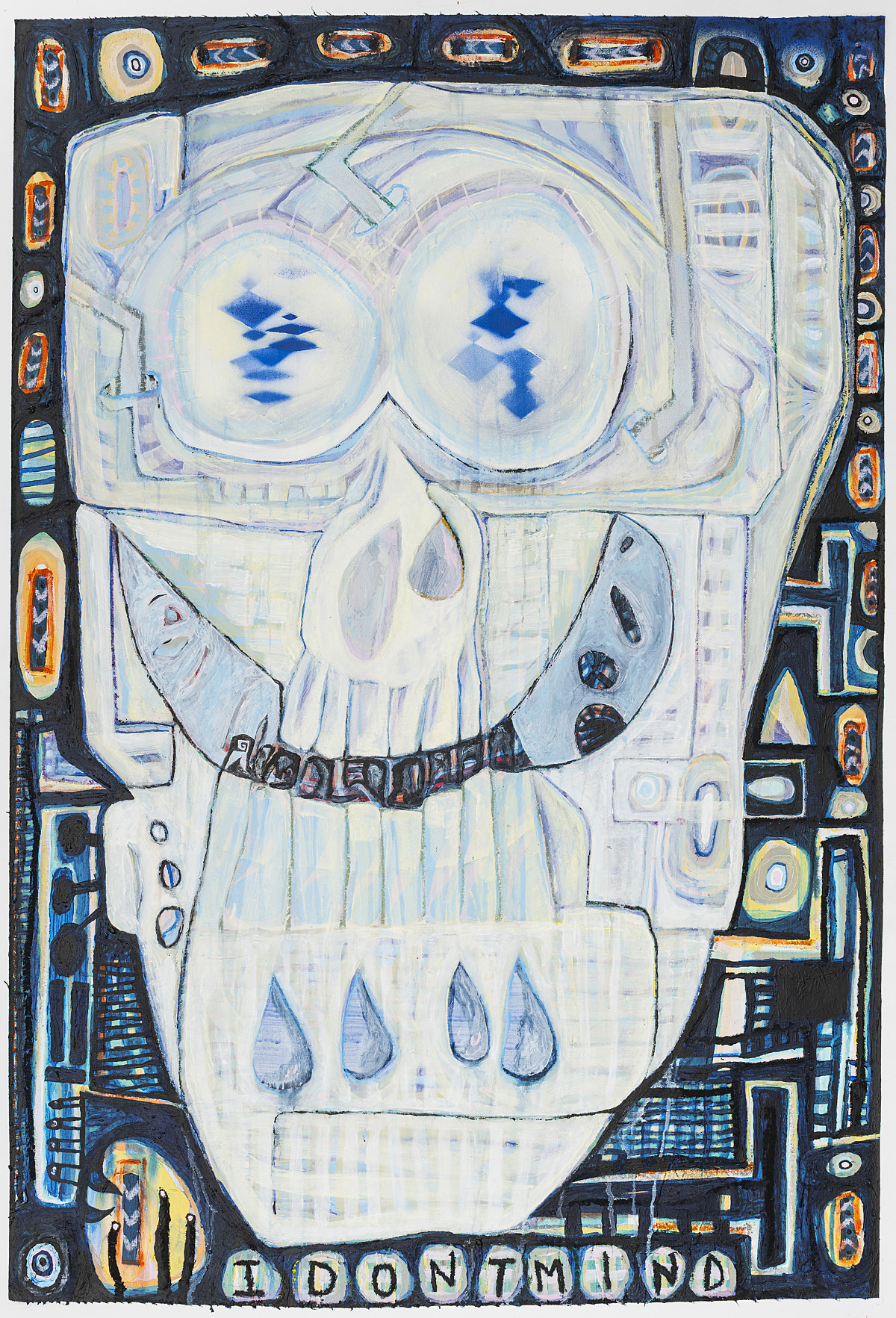happy harvest
2022-ongoing series of paintings on canvas.
20231019-20240107: 3 shown at Palais de Tokyo, Paris (show: La mosure des termites)
20240609-20240922: 12 shown at Kunstverein Arnsberg (solo: Inverse, Youniverse)
20250111-20250208: 5 shown at Fred&Ferry Gallery, Antwerp (show: Agreement)












Jung's Crown Jewel; an online interview with Bernardo Kastrup.
20240418 / Translation, transcript, excerpt, summary.
“The crown jewel of Carl Jung's legacy is a small little book Carl Jung titled ‘Answer to Job’. In ‘Answer to Job’ Jung makes a psychological analysis of God's behavior in both ‘The Book of Job’ (Old Testament) and of God's behavior in the New Testament.
Jungs ‘Answer to Job’ is about how God seems to undergo an amazing psychological transformation between the Old and the New Testament.
At the end of the Old Testament (Book of Job) God makes a bet with Satan. Satan, in the Old Testament, is the prosecutor in the court of God. Satan is not a sadist but rather an altar of God who puts a mirror in front of humanity when humanity becomes filled with self-righteousness. The devil shows us humans that we are guilty of the things we are accusing others to be guilty of; the devil reveals to us how we project to others our own repressed dark side. The Satan of the Old Testament confronts us with our own shadow.
In ‘Book of Job’ the devil proceeds to torture Job with lots of tragedies over the longest of times …while Job did nothing wrong. And at the end of the story Job confronts God with the fact he was a righteous and good man. Job mirrors to God that it was unfair to be punished by the devil. Job questions the validity of God by asking why he had to experience all these tragedies while being a fair and righteous man. But God doesn’t answer Jobs' direct question and instead goes on a long tirade claiming He (God) is the power behind everything.
In ‘Answer to Job’ Jung analyzes the psychology of the God of the Old Testament and concludes God was incapable of self-reflection or meta-consciousness. Jung says that the God of the Old Testament is omniscient but didn't know how to consult His omniscience. In Jung's analysis God sinned against Job. And to redeem His sins the God of the New Testament enters his own creation in the form of a mortal and righteous man. God himself can now directly experience the injustices and suffering of humanity by becoming Christ. In the New Testament God-man suffers similarly like Job had to suffer and, as a consequence of the insights of Christ's suffering, God transforms toward the summum bonum; the ultimate good God of the New Testament.
By suffering through man’s unique perspective, through the figure of Christ, God can now become more conscious, more self-aware, in Jungian terminology, more individuated.
Jung Legacy in ‘Answer to Job’ is summarized when Jung explains that humanity contributes to God by being self-reflective. Jung explains that humans are small and vulnerable in front of the monstrousness of the world. And our weakness and the knowing of our own mortality forces us to contemplate the world and to ask deep metaphysical questions. Humans are pushed to become self-reflective or meta-conscious by pondering our mortality and the implications of our actions and the reactions of the world. By being self-reflective we offer new insights to the Godhead; insights about suffering which God Himself cannot have because of the limitations of being almighty. Since God is All He can never be forced to become self-reflective and He cannot contemplate the suffering of being. But Humanity enables and adds this attribute of self-reflectiveness to God. It is through the human experience that God becomes self-reflective and adaptive towards the good.
By this insight Jung restores the meaning of being human. In ‘Answer to Job’ humanity is no longer cruel or pointless. Humanity is to be understood as a reflective sense organ of Divinity which enriches the Godhead with new insights about what is right and what is wrong. Human suffering becomes meaningful; because by self-reflecting we give reality a directionality; we aim God towards a better future.
Humans are thus scientists in the laboratory we call the world and each of us is performing a leading edge research by living our lives and reflecting on our sufferings and joy …so to learn new insights that God Himself cannot know.
Humanity has been deputized by God to help Divinity to become better. And we do this by being human, by being more conscious, by being more self-aware and, in dying, by offering our insights as a gift to the Divine.“